Definition of Customer Service Philosophy
Customer service philosophy is the guiding framework that shapes how a company interacts with its customers. It encompasses the beliefs, values, and practices that drive customer service efforts.
Key Customer Service Philosophy Examples
Here are the key customer service philosophy examples to know:
Customer First Attitude: Putting the needs of the customer above all else is one of the prime customer service philosophy examples. This means prioritizing customer satisfaction in every decision. A grocery store clerk who helps a customer find an item, even when busy, embodies this philosophy.
Empathy and Understanding: Another customer service philosophy examples is seeing things from the customer's perspective. An online retailer that offers a hassle-free return policy understands the importance of convenience for the customer.
Consistency and Reliability: The customer service philosophy examples show that providing consistent and high-quality service takes business to another level of success. A restaurant known for its friendly staff and prompt service maintains this standard every day, ensuring customers return.
Creating a Customer-Centric Culture
In an optimum customer service philosophy, creating a customer-centric culture is vital for delivering exceptional service and achieving long-term success.
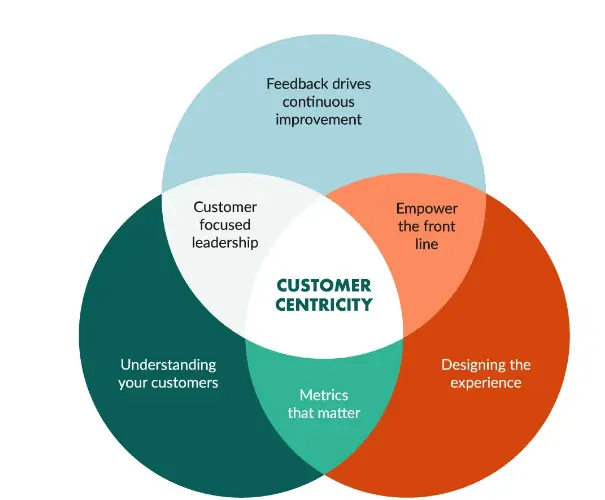
Empowering Employees
By empowering employees, one can:
Authority to Make Decisions: Allow employees to solve customer issues on the spot. A retail store clerk offering a discount to resolve a complaint without needing manager approval shows empowerment.
Training and Development: Provide ongoing training to improve skills and knowledge. A tech support agent who receives regular updates on new software features can assist customers more efficiently.
Recognition and Rewards: Acknowledge and reward employees for outstanding service. An employee-of-the-month program in a hotel can motivate staff to go above and beyond.
Encouraging Team Collaboration
In an optimum customer service philosophy, team collaboration is encouraged as:
Open Communication: Foster open communication channels. A weekly team meeting in a call center allows employees to share customer feedback and solutions.
Shared Goals: Set common goals for the team. In a marketing firm, having a unified objective to improve customer engagement can drive team efforts.
Cross-Functional Teams: Encourage collaboration across departments. A project team comprising sales and customer service staff in a software company can enhance product support.
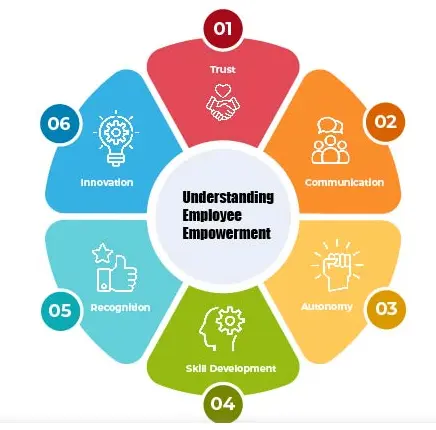
Building a Positive Work Environment
Building a positive work environment can cause:
Positive Reinforcement: Use positive reinforcement to boost morale. A restaurant that praises staff publicly for good service creates a supportive atmosphere.
Healthy Work-Life Balance: Promote a healthy work-life balance. Offering flexible schedules in a consulting firm helps reduce burnout and keeps employees motivated.
Inclusive Culture: Create an inclusive culture where everyone feels valued. A retail company that celebrates diverse holidays fosters a sense of belonging among employees.
Effective Communication
Effective communication is a cornerstone of the optimum customer service philosophy. It involves:
Clear and Simple Language
Use the simple and clear language for effective communication as:
Avoiding Jargon: Use language that customers can easily understand. A tech support representative who explains a solution in plain terms, without technical jargon, helps customers feel more confident.
Active Listening: Ensure that employees listen actively to understand customer needs. A customer service agent repeating back a customer’s concerns to confirm understanding shows attentiveness.
Providing Clear Instructions: Give straightforward instructions. A bank representative guiding a customer step-by-step through the online banking setup process demonstrates clarity.
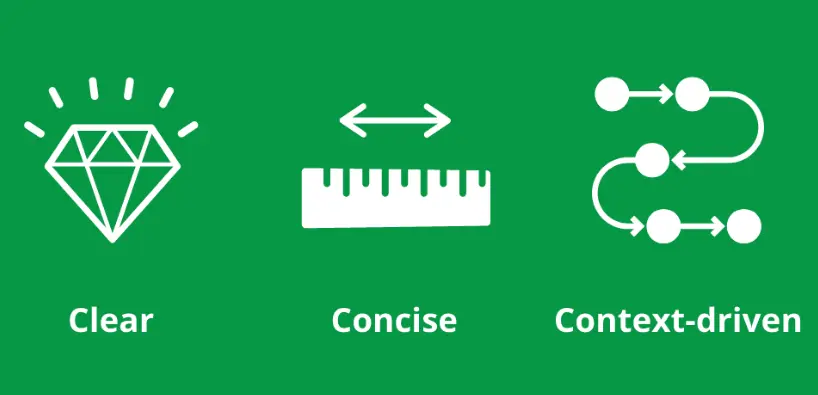
Importance of Timeliness
The importance of timeliness are as follows:
Quick Response Times: Respond to customer inquiries promptly. An e-commerce company that replies to customer emails within 24 hours shows respect for the customer's time.
Timely Updates: Keep customers informed about the status of their issues. A delivery service sending regular updates on package whereabouts ensures customers feel valued and informed.
Efficient Resolution: Resolve issues swiftly. A car rental service that quickly addresses billing errors maintains customer trust and satisfaction.
Handling Complaints Gracefully
To handle the complaints gracefully shows the effectiveness of customer service communication:
Empathy and Apology: Show empathy and offer sincere apologies. A hotel manager who personally addresses a guest’s complaint about room cleanliness demonstrates care and responsibility.
Problem-Solving: Focus on finding a solution. A restaurant manager who offers a free meal voucher for a delayed order shows a commitment to making things right.
Follow-Up: Check back with the customer after resolving an issue. A telecom company calling back to ensure a service problem is fixed reinforces reliability.
Consistency in Customer Service Delivery
This section of customer service philosophy is about consistency in customer service delivery.
Standardizing Procedures
The standard procedures includes:
Clear Policies: Establish clear policies for handling customer interactions. A retail store with a standardized return policy ensures every customer experiences the same level of service.
Consistent Training: Train employees consistently across all locations. A global fast-food chain providing uniform training ensures customers receive the same quality of service everywhere.
Regular Audits: Conduct regular audits to ensure compliance with service standards. A financial institution performing periodic reviews ensures all branches maintain high service levels.
Training and Development
The training and development of customer service is:
Ongoing Education: Offer continuous training programs. A software company providing regular product updates and customer service workshops ensures employees stay knowledgeable.
Skill Enhancement: Encourage skill development. A call center offering communication and conflict resolution courses helps employees handle a variety of customer situations effectively.
Mentorship Programs: Implement mentorship programs. A retail company pairing new hires with experienced employees accelerates learning and integration into the company culture.
Continuous Improvement
The continuous improvement is the key:
Feedback Loops: Establish feedback loops to gather employee insights. A logistics company holding regular team meetings to discuss service improvements fosters a culture of continuous growth.
Innovation Incentives: Reward innovative ideas. A customer service department recognizing employees who suggest process improvements encourages proactive problem-solving.
Adaptation and Flexibility: Be willing to adapt and improve. A travel agency regularly updating its service protocols based on customer feedback shows a commitment to excellence.
Measuring Success
This section is about measuring success of an optimum customer service philosophy.
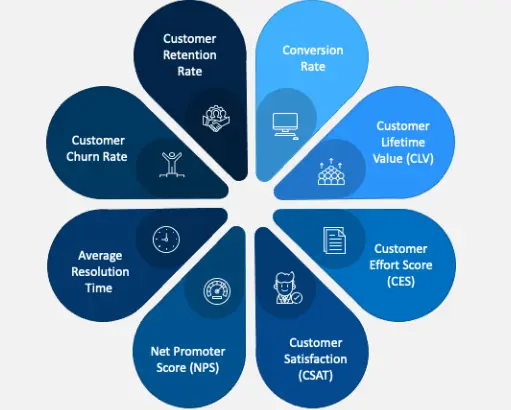
Key Performance Indicators (KPIs)
The KPIs shows the:
Response Time: Measure average response times. A support team tracking time taken to respond to customer queries ensures efficiency.
Resolution Rate: Track the percentage of resolved issues. A tech support team with a high resolution rate demonstrates effective problem-solving.
Customer Satisfaction Scores: Use customer satisfaction surveys. A retail chain assessing customer happiness through post-purchase surveys gauges service effectiveness.
Customer Feedback
Customer feedback is important for improving customer service:
Surveys and Reviews: Collect customer feedback through surveys and reviews. An airline requesting feedback after each flight uses this data to improve services.
Social Media Monitoring: Monitor social media for customer comments. A brand tracking mentions and direct messages on social media platforms addresses concerns swiftly.
Direct Feedback Channels: Provide direct channels for feedback. A restaurant with a comment box or online feedback form encourages customers to share their experiences.
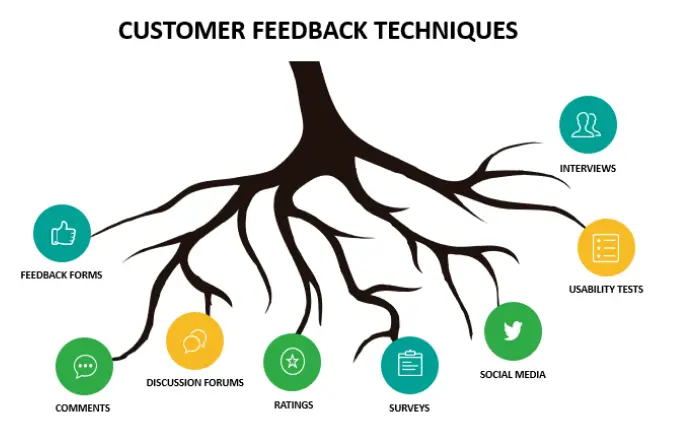
Adapting to Feedback
Feedback is helpful when its adapted and implement in the program as:
Implementing Changes: Act on feedback to make necessary changes. A software company updating features based on user feedback shows responsiveness.
Communication of Changes: Inform customers about improvements made based on their feedback. A subscription service sending newsletters about service enhancements demonstrates attentiveness.
Continuous Monitoring: Regularly review feedback to ensure ongoing improvement. A healthcare provider consistently analyzing patient feedback ensures high-quality care.
Frequently Asked Questions (FAQs)
Why is a customer service philosophy important?
Customer service philosophy ensures consistent and high-quality customer interactions, builds trust and loyalty, and aligns employee actions with the company’s values and goals, ultimately enhancing customer satisfaction and business success.
How can a company develop a customer service philosophy?
A company can develop an optimum customer service philosophy by identifying core values, involving employees in the process, and consistently training and reinforcing these principles to ensure they are embodied in every customer interaction.
What are the key components of an effective customer service philosophy?
Key components of an optimum customer service philosophy include empathy, active listening, clear communication, prompt resolution, consistency, and continuous improvement, all aimed at meeting and exceeding customer expectations.
How does a customer service philosophy benefit employees?
Customer service philosophy provides clear guidelines and expectations, empowers employees to make decisions, and fosters a positive work environment, which can increase job satisfaction and performance.
How can a customer service philosophy improve customer satisfaction?
By ensuring consistent, empathetic, and effective interactions, a customer service philosophy helps build trust and loyalty, leading to higher customer satisfaction and retention.
